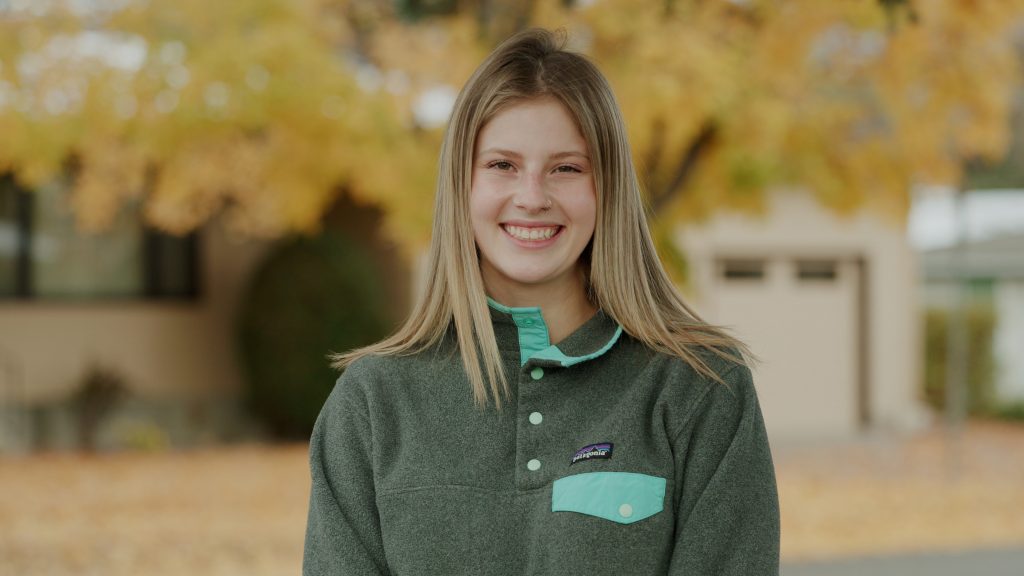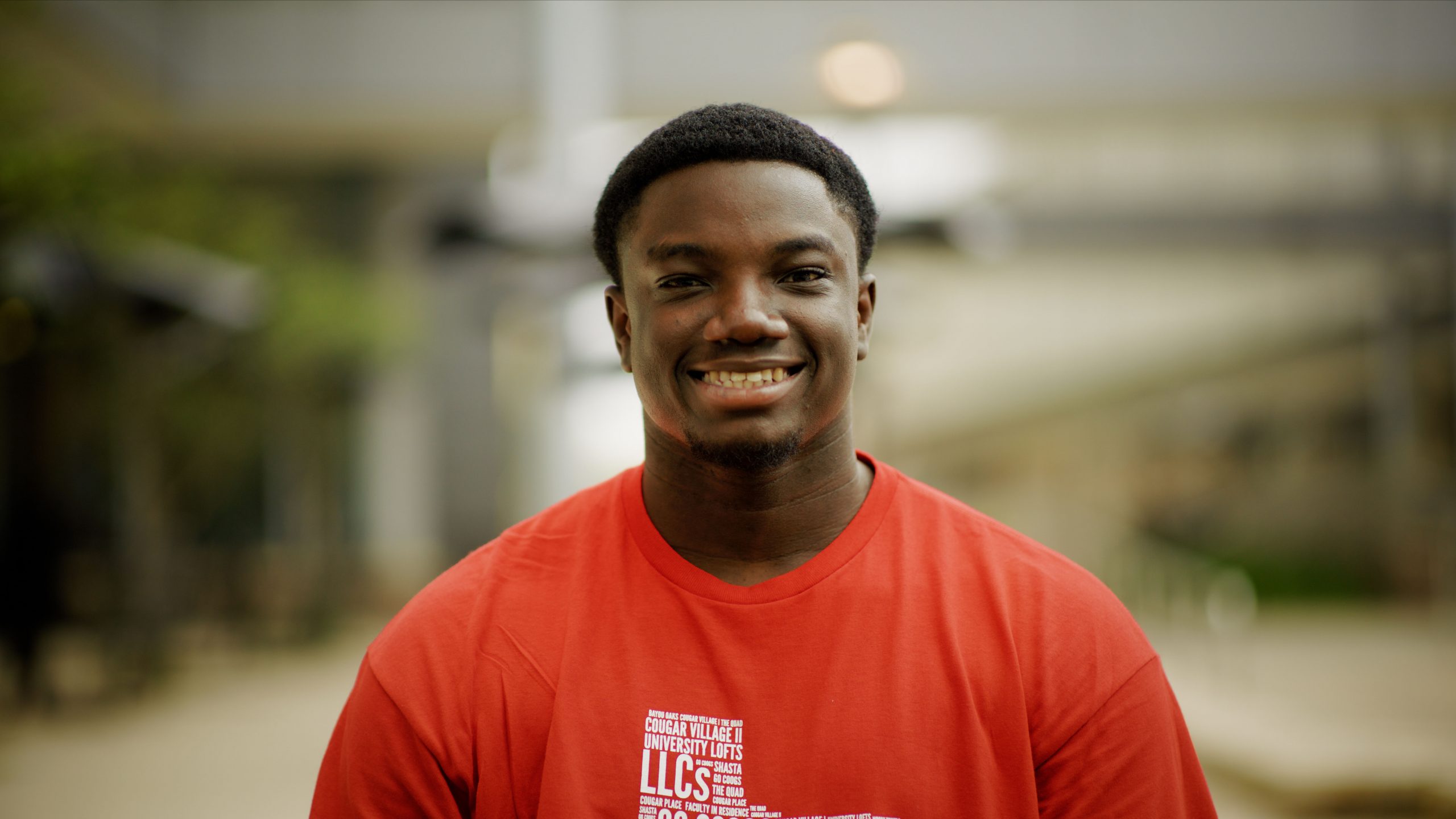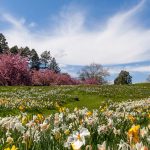WHAT QUESTIONS ARE YOU ASKING?
What is the meaning of life? Why am I here? What’s the purpose of all of this?
When I was a kid, I asked why until my parents ran out of answers and eventually resorted to “because we said so” or “you can learn that later.” (Candidly, I can hear coworkers saying “you still do that” right now.) Now as a mom of two, I hope my kids inherited the same curiosity and questioning of authority, even if that means I’m on the receiving end of the double-edged sword!
If we don’t do this as children, we often ask these questions in moments of transition — graduating high school, getting married, becoming a parent, or losing something meaningful like a job or a loved one.
These questions are so important to ask. They make us consider what we believe and why — causing our truths to take root and our character to grow. Whatever truth we plant and water, takes root and directs our entire life. If you’re like me, it can be a struggle to uproot and change those core beliefs later when our circumstances change or new information enters the proverbial chat.

STARTING WITH HOW
Closely followed behind the need to know why, I needed to understand how. I couldn’t and still can’t, understand something entirely unless I know the why behind it, what it is, and how it works. (Yes, those closest to me are requesting prayers at this time.)
So imagine me hearing the creation story. Sunday school teachers winced knowing they were in for a challenge.
I got what God did. I learned how later. But it took me decades to understand and accept why.
Scripture clearly lays out what God did — in the most beautiful, metaphorical way that not even Shakespeare could stitch together. Genesis 1 tells us, “In the beginning God created the heavens and the earth.” A big claim that says God is, God makes, and God made everything.
In three days, he created time and space.
Light was first, blazing a trail through the dark and separating day from night, creating time.
Then he separated the waters from above (rain) from the waters below, creating spaces of land and sky.
He glittered the land with trees, plants, and vegetation.
Over the next three days, he filled the sky with the sun and moon, giving us days, years, and seasons.
And then he added life to every space in between — birds in the sky, animals on land and in the sea.
Finally, he made us, and took a break. Not because he was tired, but to declare the day holy and to reflect on his creations and the relationships between them.
We don’t know how he did it — did he snap his fingers? Was that the “big bang”? I think it’s beautiful we’re still debating that today and continue to ask that question. And I love that he equipped us with intelligence to organize and condense knowledge about the universe into a systematic enterprise of laws and theories known as science.
While we disagree theologically, I love and respect what Mayim Bialik (who ironically stars as Amy from the hit show, The Big Bang Theory) says on this: “Understanding the relationships between science and God makes me a better scientist and a more complete person.”
LEARNING TO ASK WHY
While I continue to learn the how (albeit, not very well as I struggle to keep succulents alive), I continually come back to why. This is the deeper question — and one we often forget to ask.
Why did God do this?
Why did he make the world, bring order to chaos, light to darkness?
Why did he make us?
Make me?
Or back to the beginning (pun intended) — What’s the meaning of life? Why am I here? What’s the purpose of all of this?
FROM GOOD TO VERY GOOD
On the sixth day of creation, he creates “human beings in his image” and all of a sudden what was “good” becomes “very good.” In fact, God has called creation “good” six times up to this point, but now it becomes even better!
Why the change? God says humans will reign over the fish, birds, and animals (1:26). Scripture says we’re created in his own image. “In the image of God, he created them; male and female he created them” (1:27). He blesses us telling us to be fruitful and multiply. Fill the earth and govern it (1:28). He assures us he’s given us everything we need to sustain life and everything that has life is ours (1:29). Then God looked over all he had made, and he saw that it was very good (1:31).
We were made to govern, or look after, direct, influence, be an agency over everything God had made. Why? Because we were made in his image and likeness. Why? So we could steward a world that reflected its creator, our creator, in form, function, purpose, and meaning.
Creation was complete and humans are intended to care for it and help it flourish. Why? So that we may know him and make him known. (The fervor at which I’m clicking away on my keyboard could break the sound barrier.)
MADE FOR THIS
What did God do? He made a beautiful, breathtaking world. How is still being debated today, but we know more than we’ve ever known thanks to science, and the more we learn and experience his thumbprint, the more miraculous it is — just look at the miracle of life itself!
And he did it to have an ordered place where he could rule and be present, having a special relationship with humans (you!) who were created in his image to reflect his glory and fulfill his plans and purpose on earth. He didn’t have to. But he did so we may see how loving and caring he is. Repeatedly, the Bible is clear that God loves — deeply, faithfully, immeasurably, and sacrificially. This love started from the beginning, long before Jesus, when God created the world.
If I could find all the people who streamed “What Was I Made For” by Billie Eilish over 600 million times on Spotify, I’d tell them …
“In the beginning, God created the heavens and the earth.” And at one specific time, God created you. He designed you to be in a relationship with him, do the good work he planned for you, and reflect his image to those around us.
It’s the most meaningful, amazing, wonderful life script.
And it was made for you.
You were made for this.
This article was inspired by “The Very Good Creation”, episode 31 of Words & Ways — a mini podcast from Young Life with a goal to get to know and become more like Jesus each day by spending time in God’s Word. Let’s keep the conversation going in the comments.
- Think about two “movements” of creation: first the different spaces and then the specific inhabitants. What do you think about the way the story is told?
- Why do you think God said all the individual parts of creation were good and that the complete and finished creation was very good?
- Read some of the other creation poems in the Bible (from Job 38-39 and Psalms 8, 104, 148). What do you notice and think about those?
- What have you thought about the biblical creation story in the past? Do you have any new thoughts or ideas now?
- What do you learn about God from this story? How does that impact the way you understand and experience him?
About the Author:
Chelsea Cannon serves as Young Life’s director of Marketing with a heart for teenagers, Jesus, and getting the right message to the right person at the right time in the right place. Whether talking to millions through Young Life’s global campaigns or one-on-one in conversations with her friends, family, and community, she simply wants to use her gifts to glorify God. Chelsea and her husband have been married eight years and have two kids, 4 and 2 years old, and currently live in Dublin, Georgia.
Listen to more episodes of Words & Ways on Apple or Spotify.







